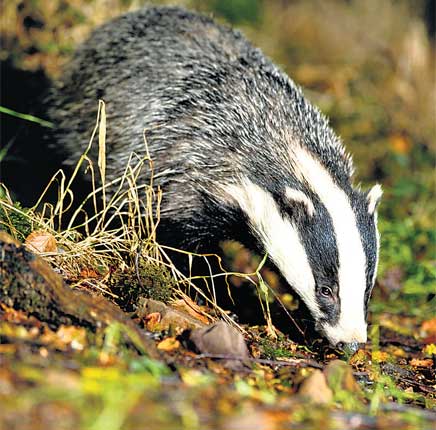Farmers' call for badger cull to be approved by ministers

Your support helps us to tell the story
From reproductive rights to climate change to Big Tech, The Independent is on the ground when the story is developing. Whether it's investigating the financials of Elon Musk's pro-Trump PAC or producing our latest documentary, 'The A Word', which shines a light on the American women fighting for reproductive rights, we know how important it is to parse out the facts from the messaging.
At such a critical moment in US history, we need reporters on the ground. Your donation allows us to keep sending journalists to speak to both sides of the story.
The Independent is trusted by Americans across the entire political spectrum. And unlike many other quality news outlets, we choose not to lock Americans out of our reporting and analysis with paywalls. We believe quality journalism should be available to everyone, paid for by those who can afford it.
Your support makes all the difference.Ministers are poised to give the go-ahead to a widespread cull of badgers in a bid to halt the growing spread of tuberculosis in cattle – with a significant gap still remaining in the science behind the move.
After nearly 15 years of argument about the links between badgers and bovine TB, and the merits of killing them to combat the disease, the Environment Secretary, Caroline Spelman, is expected to bow to farmers' demands and recommend a cull to David Cameron, possibly as early as tomorrow.
If the Prime Minister and his Cabinet agree to what will be an intensely unpopular move with many animal lovers, groups of farmers will be licensed to organise the shooting of badgers in selected areas in the West Country, the worst-affected region, where nearly a quarter of all cattle farms were hit by TB infections last year. Thousands of badgers, perhaps tens of thousands, will be killed over a period of four years.
It is widely accepted by scientists that badgers are a significant source of TB infection in cattle. But officials from the Department for Environment, Food and Rural Affairs (Defra) admit a significant unknown factor remains about the policy of "free-shooting" likely to be employed – that is, the shooting of free-roaming badgers by trained marksmen, which would occur at night, or as the animals emerged from their setts in the evening. The technique has now been renamed "controlled shooting" by Defra.
The problem is the phenomenon known as "perturbation" that would result from the shooting – where survivors of a disturbed, partly-culled family group of badgers wander about the countryside, spreading TB as they go, and actually making the disease situation worse.
This was discovered in the decade-long badger culling trials run by the Government, which caused them to be abandoned. Subsequent research showed, Defra officials say, that the "perturbation effect" diminished with time, and so the culling effect was beneficial as far as TB levels were concerned.
But this was only with the technique employed in the trials – shooting badgers after they had been trapped in cages. Cage-trapping will not be used in the actual cull, as it is 10 times more expensive than free-shooting. Cage-trapping and shooting costs about £2,500 per square kilometre of land per year, as opposed to only about £200 for free-shooting.
Defra officials admit it is possible that the perturbation effect during a free-shooting campaign will be even worse – but as it has never been tested, no one can say.
Nevertheless, the advice to ministers from a panel of Britain's most senior biological scientists, assembled by Defra in the spring to review the science behind the issue of badgers and cattle TB, is that a cull would reduce the incidence of the disease in cattle herds by up to 16 per cent.
Virtually all cattle farmers, and many of the veterinary officials associated with the problem, take the view that the present biocontrol measures of cattle testing – slaughter and movement restriction – are simply not enough to halt the spread of the infection, which has cost the taxpayer more than £500m over the last decade. The Government says a programme of vaccination is several years away from being practicable.
Animal welfare groups are vociferously opposed to a cull, and it is thought likely that activists will try to disrupt culling operations, presenting a potentially public order problem.
Join our commenting forum
Join thought-provoking conversations, follow other Independent readers and see their replies
Comments